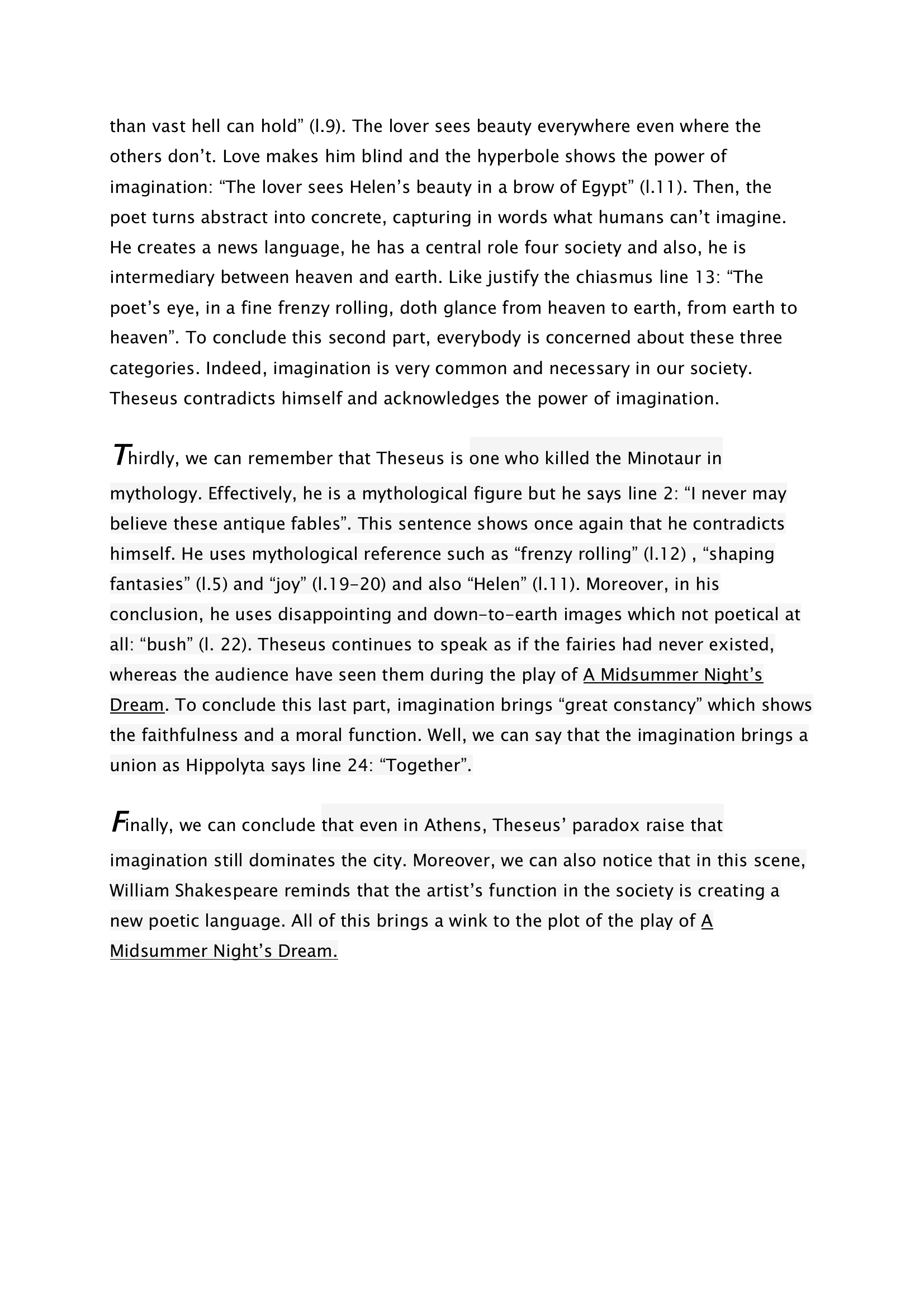Act V, scene one of A Midsummer Night's Dream
Publié le 07/03/2012

Extrait du document
«
than vast hell can hold” (l.9).
The lover sees beauty everywhere even where the
others don’t.
Love makes him blind and the hyperbole shows the power of
imagination: “The lover sees Helen’s beauty in a brow of Egypt” (l.11).
Then, the
poet turns abstract into concrete, capturing in words what humans can’t imagine.
He creates a news language, he has a central role four society and also, he is
intermediary between heaven and earth.
Like justify the chiasmus line 13: “The
poet’s eye, in a fine frenzy rolling, doth glance from heaven to earth, from earth to
heaven”.
To conclude this second part, everybody is concerned about these three
categories.
Indeed, imagination is very common and necessary in our society.
Theseus contradicts himself and acknowledges the power of imagination.
T hirdly, we can remember that Theseus is one who killed the Minotaur in
mythology.
Effectively, he is a mythological figure but he says line 2: “I never may
believe these antique fables”.
This sentence shows once again that he contradicts
himself.
He uses mythological reference such as “frenzy rolling” (l.12) , “shaping
fantasies” (l.5) and “joy” (l.19-20) and also “Helen” (l.11).
Moreover, in his
conclusion, he uses disappointing and down-to-earth images which not poetical at
all: “bush” (l.
22).
Theseus continues to speak as if the fairies had never existed,
whereas the audience have seen them during the play of A Midsummer Night’s
Dream.
To conclude this last part, imagination brings “great constancy” which shows
the faithfulness and a moral function.
Well, we can say that the imagination brings a
union as Hippolyta says line 24: “Together”.
Finally, we can conclude that even in Athens, Theseus’ paradox raise that
imagination still dominates the city.
Moreover, we can also notice that in this scene,
William Shakespeare reminds that the artist’s function in the society is creating a
new poetic language.
All of this brings a wink to the plot of the play of A
Midsummer Night’s Dream..
»
↓↓↓ APERÇU DU DOCUMENT ↓↓↓
Liens utiles
- Excerpt from A Midsummer Night's Dream - anthology.
- ACT 1 SCENE 1 TIRADE DE SABINE
- lecture analytque le mariage de figaro, scene 5, act III
- Erytheia (Erythia; Dazzling Light) Greek A Dryad, or wood Nymph; one of the sisters known as the Hesperides; either the daughters of Erebus (Darkness) and Nyx (Night) or the daughters of Atlas and Pleione or Hesperis.
- electre, act 2 scene 8, analyse







